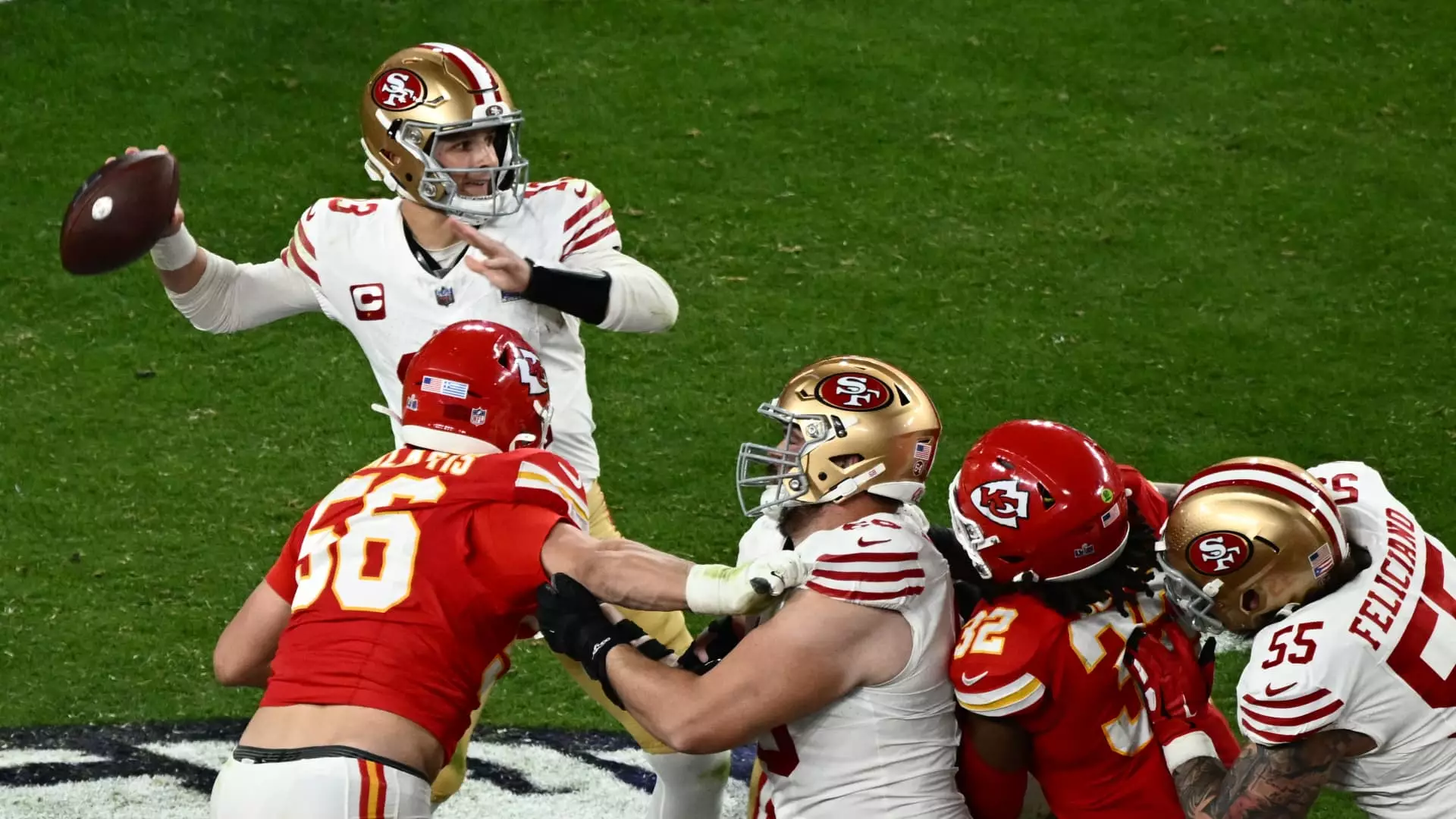Brock Purdy, once considered merely a late-round draft pick in the 2022 NFL draft, has now emerged as a standout quarterback for the San Francisco 49ers. His story is a remarkable testament to the unpredictability of talent evaluation in professional sports. Selected as the very last pick at 262, Purdy’s ascent to leading his team to the Super Bowl has highlighted a significant gap in traditional scouting methods. Despite his undeniable success, it begs the question of how such talent was overlooked initially. This discrepancy serves as a crucial reflection point for organizations looking to refine their player evaluation processes.
Al Guido, president of the 49ers, has spotlighted a pressing issue within sports organizations: the need for more accurate and comprehensive talent assessment. In a recent interview, he discussed the potential role of artificial intelligence in transforming how teams evaluate athletes. Guido indicated that merely relying on traditional scouting is insufficient, especially in sports as intricate and variable as soccer. The global nature of soccer, with its multitude of leagues and varying competition levels, complicates the already intricate task of identifying potential stars. In this vein, AI could potentially sift through vast amounts of data, providing insights that human scouts may overlook.
Bridging the Gap Between Tradition and Technology
Guido emphasized an essential strategy for the 49ers: the fusion of conventional scouting techniques with modern data analytics. He articulated that leveraging advanced metrics could lead to more informed and effective evaluations. This integration is not only envisioned for American football but extends to soccer, particularly given the 49ers’ ownership of Leeds United. The challenge of recognizing talent in a diverse landscape only underscores the importance of a multi-faceted approach, marrying human instincts with algorithmic precision.
As Purdy prepares for a potential contract extension this off-season, the buzz surrounding his valuation underscores the critical need for accurate assessments. His impressive performance has not only elevated his status but also compelled the organization to reconsider the parameters defining a “successful” player. Guido’s ambition to harness AI is particularly pertinent as teams grapple with the financial implications of player contracts. Establishing a robust evaluation framework could empower the 49ers to make well-founded decisions in player retention and acquisition.
The narrative of Brock Purdy serves as a catalyst for sports organizations to rethink their methodologies in talent assessment. As AI technology evolves, the sports industry faces an unprecedented opportunity to enhance how it identifies and nurtures talent. By actively incorporating data-driven strategies alongside traditional scouting, teams can strive to eliminate biases and ultimately foster a more inclusive and rigorous evaluation process. As organizations like the 49ers lead the charge toward embracing this change, the future of talent assessment could witness a revolutionary shift, transforming the playing fields of both American football and soccer.

